Current Projects
Country: Bangladesh
Showing 1 - 11 of 11
11 results found
To fast-track readiness and early actions to implement the post-2020 Global Biodiversity Framework by providing financial and technical support to GEF-eligible Parties to the Convention on Biological Diversity (CBD) in their work to review and align their national targets, NBSAPs, policy frameworks, monitoring frameworks and finance with the Global Biodiversity Framework
To enhance national-level institutional and technical capacities for the 2021-2022 UNCCD reporting process in the context of the UNCCD Strategic Framework 2018-2030 and SDG15.3
Significant and documented reductions in use, releases, and exposure to chemicals of concern (CoCs) including POPs in the textiles sector in selected countries
To assist GEF-Eligible Parties to the Cartagena Protocol on Biosafety to prepare and submit their Fourth National Reports on measures that each Party has taken to implement the Cartagena Protocol on Biosafety
To decrease the vulnerability of local communities living in the Barind Tract and Haor Area to the negative impacts of climate change, using Ecosystem-based Adaptation (EbA) approaches.
Establish knowledge base and enabling policy and institutional environment for SLM consideration in the country development agenda
To Assist GEF-Eligible Parties to the Cartagena Protocol on Biosafety to prepare and make timely submission of their Third National Reports on measures that each party has taken to implement the Protocol in line with Article 33
To support the development of national fuel economy policies in 20 countries, 6 countries through GEF-5 STAR Allocations and 14 without GEF funding, using existing tools developed with GEF-4 support (examples are the fuel economy baseline calculation methodology and online GFEI toolkit). In addition, to support coordination of the 20 country projects at the regional level to ensure that results are disseminated to other countries within the region. This will result in reduced vehicle fleet CO2 emissions in these 20 countries inline with the Global Fuel Economy Initiative's target of a 50% improvement of the overall global fleet fuel economy by 2050.
To assist Bangladesh to implement the National Biosafety Framework in compliance with the Cartagena Protocol on Biosafety through enhancing the existing capacity on Biosafety at the Institutional, Individual and Systemic levels in Bangladesh, as well as to address national needs and priorities.
The immediate objective of the project is to develop and test tools which can be used in decision-making to support the conservation of indigenous farm animal genetic diversity in developing countries.NOTE:For earlier comments on concept note and PDF-B, please see database entry.
To strengthen institutional, human and regulatory capacities and promote cooperative measures in the implementation of National Biosafety Frameworks for the safe transfer, handling and use of living modified organisms (LMOs) in Asia.
Showing 1 - 11 of 11




